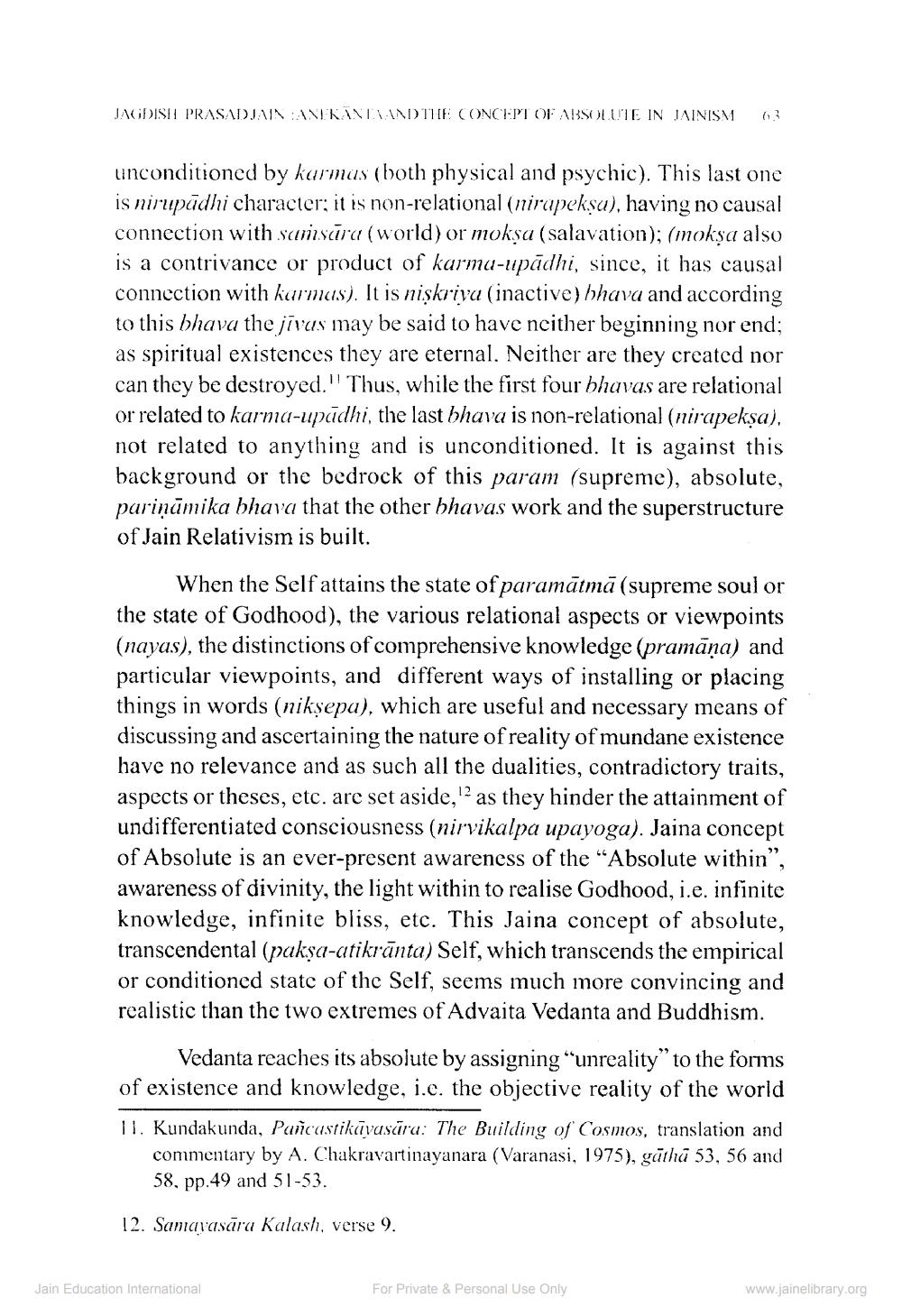________________
JAGDISH PRASADJAN ANIKANTSIND THE CONCEPT OF ABSOLUTE IN JAINISM
03
unconditioned by karmus (both physical and psychic). This last one is nirupādhi character; it is non-relational (nirapeksa), having no causal connection with sansara (world) or moksa (salavation); (moksa also is a contrivance or product of karmu-upādhi, since, it has causal connection with karmus). It is nișkrivu (inactive) bhava and according to this bhava the jīvus may be said to have neither beginning nor end; as spiritual existences they are eternal. Neither are they created nor can they be destroyed." Thus, while the first four bhavas are relational or related to karma-upādhi, the last bhava is non-relational (nirapeksa), not related to anything and is unconditioned. It is against this background or the bedrock of this param (supreme), absolute, parināmika bhava that the other bhavas work and the superstructure of Jain Relativism is built.
When the Self attains the state of paramātmā (supreme soul or the state of Godhood), the various relational aspects or viewpoints (nayas), the distinctions of comprehensive knowledge (pramāņa) and particular viewpoints, and different ways of installing or placing things in words (nikṣepa), which are useful and necessary means of discussing and ascertaining the nature of reality of mundane existence have no relevance and as such all the dualities, contradictory traits, aspects or theses, etc. are set aside,l2 as they hinder the attainment of undifferentiated consciousness (nirvikalpa upayoga). Jaina concept of Absolute is an ever-present awareness of the “Absolute within”, awareness of divinity, the light within to realise Godhood, i.e. infinite knowledge, infinite bliss, etc. This Jaina concept of absolute, transcendental (paksa-atikrānta) Self, which transcends the empirical or conditioned state of the Self, seems much more convincing and realistic than the two extremes of Advaita Vedanta and Buddhism.
Vedanta reaches its absolute by assigning “unreality” to the forins of existence and knowledge, i.e. the objective reality of the world
11. Kundakunda, Paicastikāvasara: The Building of Cosmos, translation and
commentary by A. Chakravartinayanara (Varanasi, 1975), gāthā 53, 56 and 58, pp.49 and 51-53.
12. Samavasara Kalash, verse 9.
Jain Education International
For Private & Personal Use Only
www.jainelibrary.org




